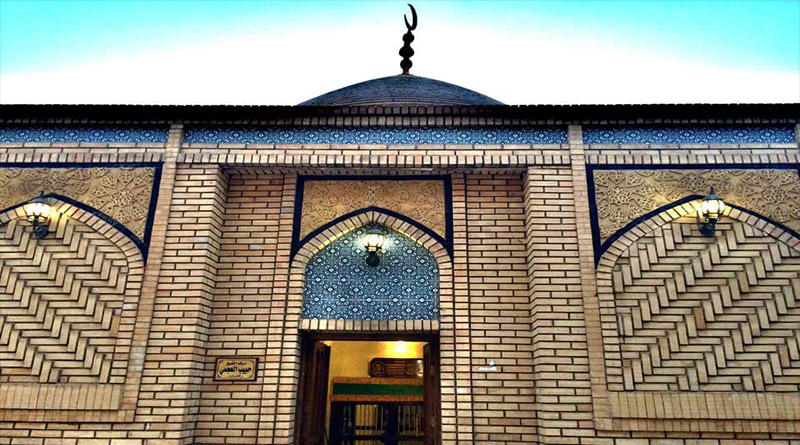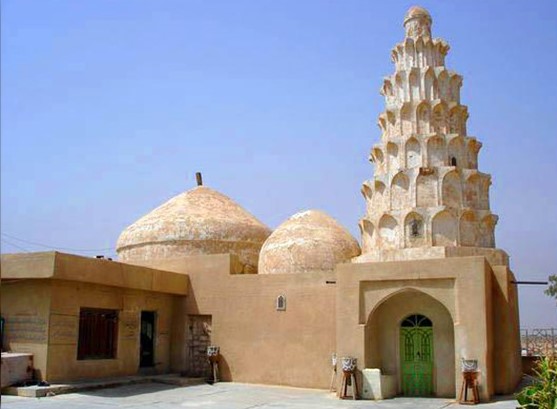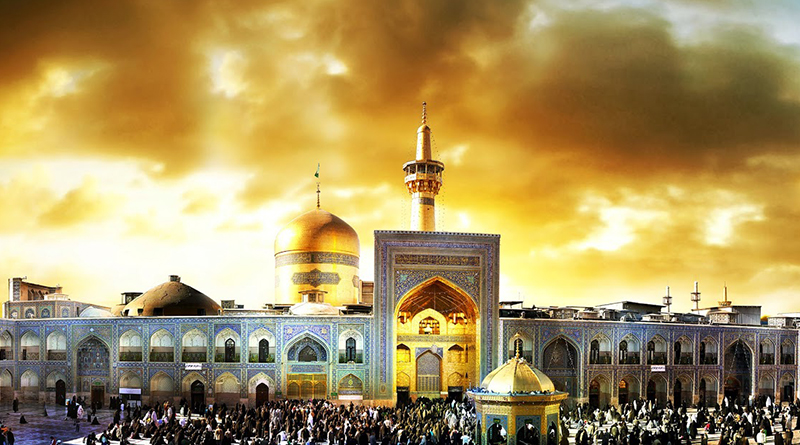The Concept of Tariqa
If we search for the concept of tariqa In the Quran in terms of Its true essence and its foundational pillars, rather than the literal term that became known later, we find that many verses reference it, clarify Its pillars, illuminate its aspects, and indicate Its nuances. For instance, followers of tariqa are renowned for their profound love of extensive remembrance (dhikr), their commitment to gatherings of remembrance, and their encouragement of awrad (devotional recitations) and praises throughout the day and night. Sheikh Abdul Qadir Gilani, may Allah sanctify his secret, described *dhikr* as the purification of mental vision, a spirit of paradise’s mercy, whose breeze wafts upon the souls of those who remember, causing spiritual elation. Sheikh Ahmed Al-Rifa’I described it as the “light of the heart.” This essential element is mentioned over 270 times in the Quran, as in: “الَّذينَ آمَنوا وَتَطْمَئِنُّ قُلوبُهُمْ بِذِكْرِ اللَّهِ أَلا بِذِكْرِ اللَّهِ تَطْمَئِنُّ الْقُلوبُ,” and also in “those who remember Allah standing, sitting, and lying on their sides.”
Another fundamental pillar of *tariqa* Is striving towards the love of Allah and His Messenger, a concept referenced in 83 verses, including: “فَسَوْفَ يَأْتي اللَّهُ بِقَوْمٍ يُحِبُّهُمْ وَيُحِبّونَهُ أَذِلَّةٍ عَلى الْمُؤْمِنينَ أَعِزَّةٍ عَلى الْكافِرينَ.” Love for Allah and His Messenger is a significant aim of *tariqa*. Additionally, *tariqa* emphasizes depth in worship. Sheikh Muhammad Al-Kasnazan describes this depth as the dedication to supererogatory acts of worship beyond obligatory ones, striving for increased acts of devotion. Many Quranic verses encourage this increased devotion, such as: “وَمِنَ اللَّيْلِ فَتَهَجَّدْ بِهِ نَافِلَةً لَّكَ عَسَى أَن يَبْعَثَكَ رَبُّكَ مَقَامًا مَّحْمُودًا.”
Uniquely, *tariqa* focuses on morality, virtues, and cultivating noble conduct, as the Almighty describes the Prophet ﷺ as having “وَإِنَّكَ لَعَلى خُلُقٍ عَظِيمٍ,” a testament to the greatness of embodying this trait.
In human interactions, *tariqa* emphasizes honesty, sincerity in work, enjoining good, forbidding evil, and avoiding social ills. Additionally, *tariqa* includes the dual aspects of jihad, both lesser and greater, and the Quran Is filled with verses that encourage both.
In mystical matters, the Quran also references divine knowledge, as exemplified in the story of Prophet Musa (Moses) with the righteous servant: “فَوَجَدَا عَبْدًا مِّنْ عِبَادِنَا آتَيْنَاهُ رَحْمَةً مِنْ عِندِنَا وَعَلَّمْنَاهُ مِن لَّدُنَّا عِلْمًا.” Thus, every aspect of *tariqa* finds its foundation in the Quran, directly or indirectly, confirming that *tariqa* encompasses all aspects of religious and worldly life, serving as a divine methodology for living by the teachings of the faith.
Tariqa as a Term
If we seek the term *tariqa* in the Quran and its implications, we find clarification in several verses. For instance, in the verse: “وَأَلَّوِ اسْتَقاموا عَلى الطَّريقَةِ لَأَسْقَيْناهُمْ ماءً غَدَقاً,” Allah mentions a specific path (tariqa) we are to adhere to. However, He does not explicitly define this term, similar to how He did not specify the details of *salat* (prayer) initially. Just as Muslims turned to the Prophet ﷺ for the specifics of *salat*, they also Interpret *tariqa* through Quranic context, as the Quran explains itself.
For example, the verse “صِرَاطَ الَّذِينَ أَنعَمتَ عَلَيهِمْ” is clarified in another verse: “فَأُوْلَئِكَ مَعَ الَّذِينَ أَنْعَمَ اللّهُ عَلَيْهِم مِّنَ النَّبِيِّينَ وَالصِّدِّيقِينَ وَالشُّهَدَاء وَالصَّالِحِينَ,” linking those Allah has blessed with the prophets and righteous. This self-explanation within the Quran applies to the concept of *tariqa*, where the term Is connected with steadfastness, indicating that understanding steadfastness elucidates Allah’s intention with *tariqa*.
Tariqa and Steadfastness
Linguistically, *istiqamah* (steadfastness) means balance, and in Islamic terms, it is the harmony between faith and action. As the Prophet ﷺ said to Sufyan bin Abdullah Al-Thaqafi, “Say, ‘I believe In Allah,’ then be steadfast.” This hadith encapsulates Islam in two words—belief and action, theory and practice, reflecting the connection between understanding and behavior.
As the Quran says, “إِنَّ الَّذِينَ قَالُوا رَبُّنَا اللَّهُ ثُمَّ اسْتَقَامُوا فَلَا خَوْفٌ عَلَيْهِمْ وَلَا هُمْ يَحْزَنُونَ,” indicating that steadfastness in following faith leads to true peace and success. As the Prophet ﷺ drew a line, explaining that the straight path he drew represented his path, he added, “And indeed, this is My straight path, so follow it.” This symbolizes the essence Of *istiqamah* as a foundational aspect of *tariqa*, linking belief with action.
**It is evident from this text how *istiqamah* (steadfastness) is the journey on the prophetic path leading to the salvation of the soul In this world and the hereafter. This path Is what Allah has commanded us to ask for in every prayer we perform, by reciting, “اهْدِنَا الصِّرَاطَ المُسْتَقِيمَ” (Guide us on the Straight Path) from the opening chapter of the Quran. So, what is this path?
It Is narrated from Al-Dahhak, on the authority of Abdullah ibn Abbas, may Allah be pleased with him, who said that Gabriel told Muhammad, “Say, O Muhammad, guide us on the straight path,” meaning, Inspire us to the guiding path. It is the guiding path to the religion of Allah, as narrated by Ibn Abbas and supported by Mujahid.
The connection and correlation between the path (which is the way) and steadfastness explain the verse: “وَأَلَّوِ اسْتَقَامُوا عَلَى الطَّرِيقَةِ لَأَسْقَيْنَاهُم مَّاء غَدَقًا” (And if they had been steadfast on the path, We would have given them abundant water), which means that if they had followed the straight *tariqa* that the Messenger of Allah ﷺ set for himself and his ummah, they would have reached the stations of nearness attained through that path.
The Prophet ﷺ said, “The path will be laid across Hell, and I will be the first of the Messengers to cross it with my ummah.” Thus, the path Is a bridge over the fire, whichh people will cross on the Day of Reckoning. According to Sheikh Muhammad Al-Kasnazan, it is a necessary outcome of a preceding reality; he asserts that the *sirat al-mustaqim* (straight path) exists in this world, and whoever cannot cross it here will not be able to cross it there. How so?
For Sheikh Muhammad Al-Kasnazan, tariqa is the literal and spiritual implementation of the Islamic Sharia in all Its pillars and branches. It prevents the seeker from prohibited acts, training the self to despise them and even to refrain from merely thinking about them. Not stopping there, it also nurtures a sense of caution against doubtful matters, cultivating piety and strengthening the trait of taqwa (consciousness of Allah) within him. Therefore, If the seeker adheres to the path of tariqa, he will be among those furthest from the forbidden and doubtful matters, making him less likely to fall from the bridge over Hell on the Day of Judgment.
Sheikh Muhammad Al-Kasnazan emphasizes that every prohibited act in this world Is, in essence, fire in the hereafter, citing Allah’s words: “إِنَّ الَّذِينَ يَأْكُلُونَ أَمْوَالَ الْيَتَامَى ظُلْمًا إِنَّمَا يَأْكُلُونَ فِي بُطُونِهِمْ نَارًا وَسَيَصْلَوْنَ سَعِيرًا” (Indeed, those who consume the wealth of orphans unjustly are only consuming fire into their bellies, and they will be burned in a Blaze), whichh implies that those who commit injustice In this world are recompensed with fire In the hereafter.
Walking the path of tariqa in this world Is like traversing the bridge in the hereafter; the more one adheres and remains steadfast, the easier and swifter his crossing will be both in this world and the next. For Sheikh Muhammad Al-Kasnazan, tariqa is the straight path upon which the seeker treads in this life, protecting him from the fire on the Day of Reckoning. As defined In the Book of the Supreme Qadiriyya Tariqa, it Is the way of the Quran, the path of the Prophet ﷺ, his pure family, and his noble companions—the very straight path that Allah mentions at the beginning of the Quran: “اهْدِنا الصِّراطَ الْمُسْتَقيمَ . صِراطَ الَّذينَ أَنْعَمْتَ عَلَيْهِمْ” (Guide us on the Straight Path. The path of those You have blessed), the path of truth and guidance, the path of Allah which brings success and bliss In both worlds to those who steadfastly follow it.
Footnotes:
1. *Bahjat Al-Asrar wa Ma’din Al-Anwar* – Sheikh Ali bin Yusuf Al-Shatnufi – Manuscript from the Public Waqf Library – Baghdad – Manuscript No. (4790) – p. 105 (abridged).
2. Ibid., p. 149.
3. *Surah Al-Ra’d*, 28.
4. *Surah Al-Imran*, 191.
5. *Surah Al-Ma’idah*, 54.
6. *Surah Al-Isra’*, 19.
7. *Surah Taha*, 4.
8. *Surah Al-Kahf*, 65.
9. *Surah Al-Jinn*, 16.
10. *Surah Al-Fatihah*, 7.
11. *Surah An-Nisa’*, 69.
12. *Basic Arabic Lexicon*, p. 1016.
13. *Sharh Sunan Ibn Majah* – Jalal al-Din al-Suyuti – Qadimi Kutub Khana – Karachi – Vol. 1, p. 276.
14. *Surah Al-Ahqaf*, 13.
15. *Majma’ al-Zawa’id* – Ali ibn Abi Bakr al-Haythami – Vol. 1, p. 18.
16. *Tafsir Al-Tabari* – Dar Al-Fikr – Beirut – 1405 AH – Vol. 24, p. 115.
17. *Surah Al-An’am*, 153.
18. *Al-Futuhat Al-Makkiyah* – Sheikh Ibn Arabi – Dar Sader – Beirut – Vol. 2, p. 217.
19. *Surah Al-Fatihah*, 6.
20. Al-Dahhak ibn Muzahim Al-Hilali, Abu Al-Qasim, also known as Abu Muhammad, Al-Khurasani. A noble Tabi’I, who narrated from Anas, Ibn Umar, Abu Huraira, and other Tabi’In. He was an authority in Quranic exegesis. Al-Thawri said, “Take exegesis from four: Mujahid, Ikrimah, Said bin Jubayr, and Al-Dahhak.” Imam Ahmad described him as reliable, and Ibn Hibban included him among the trustworthy narrators. He died in the year 100 AH.
21. *Jami’ al-Bayan fi Tafsir al-Qur’an* – Muhammad ibn Jarir al-Tabari – Dar Al-Fikr – Beirut – 1405 AH – Vol. 1, p. 72.
22. *Zad al-Masir fi ‘Ilm al-Tafsir* – Ibn al-Jawzi – Cairo – 1960 – Vol. 1, p. 9.
23. *Surah Al-Jinn*, 16.
24. *Sahih Al-Bukhari* – Vol. 1, p. 278.
25. *Surah An-Nisa’*, 10.
26. *Surah Al-Fatihah*, 6-7.
27. *Al-Tariqa Al-‘Aliya Al-Qadiriyya Al-Kasnazzaniyya* – Sheikh Muhammad Al-Kasnazan – p. 73.




